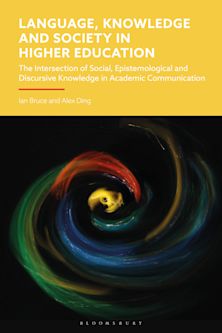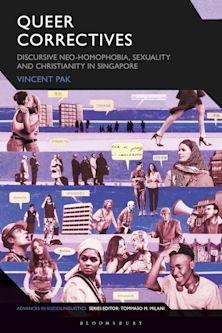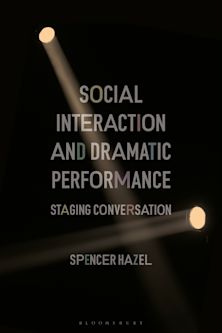Conspiracy as Genre
Narrative, Power, and Circulation
Conspiracy as Genre
Narrative, Power, and Circulation
This product is usually dispatched within 2-4 weeks
- Delivery and returns info
-
Flat rate of $10.00 for shipping anywhere in Australia
Description
From anti-vaccine politics to aliens, this volume explores diverse critical approaches to conspiracy narratives representing them as playful stories with serious ideologies and effects.
It examines conspiracy in relation to social power and authority, moving beyond either disinformation or revelation. In addition, it looks at how the genre of conspiracy is the performance of questioning authority to produce new forms of expertise which frequently stabilize existing power hierarchies.
Across three parts, the book theorizes how conspiracy narratives are told, what they do in the social world, and how they circulate these social meanings. Part One offers semiotic and narrative analyses of the language of conspiracy as a genre. Part Two examines the social effects of these narratives, arguing that elite conspiracy is a means to stabilize social power, looking in particular at gender-related conspiracies around feminism, abortion and trans rights. Part Three considers the circulation of conspiracies and the ideologies they narrate, using unique mixed methods approaches to look at multilingual data in sites and communities in Brazil, Germany, and the USA.
Table of Contents
List of Tables
List of Contributors
Acknowledgements
1. Introduction, Catherine Tebaldi (University of Luxembourg, Luxembourg)
Part I: Narrative
2. There is (Not) Intelligent Life Outside Earth: A Semiotic Approach to Conspiracy Theories, Douglas Firmino dos Santos and Lucas Felipe de Oliveira Santiago (Pontifícia Universidade Católica do Rio de Janeiro, Brazil)
3. From Epistemic to Hermetic Paranoia: Conspiracy Cinema and Its Digital Legacy, Johannes Pause (University of Luxembourg, Luxembourg)
4. Populist Experts and Alt-Expertise: On the Expertise and Meta-Expertise of the Anti-Vaccine Movement, James Slotta (UT Austin, USA)
5. “Side Effects Include:” COVID Conspiracy Theory and Narrative Resonance on 4chan's /pol/, Dillon Ludemann (University of South Carolina, USA)
Part II: Power
6. Anti-Feminist Conspiracy Theories, Megan Kelly (University of Basel, Switzerland) and Alex DiBranco (Yale University, USA)
7. Moral Panic, Transphobia, and Cultural Marxism, Kat Fuller and Quinnehtukqut McLamore (University of Nevada, USA)
8. A 'victory for white life': Intertextuality and Mainstreaming of Far-Right Conspiracy Theories in Abortion Discourse, Kristen Fleckenstein (Carolina Coastal University, USA)
9. 'FOR HUMANITY – FIGHT – LEARN': Building and Exercising a Suitable History in QAnon, Harrison Pates (King's College London, UK)
10. Anti-Intellectualism and the Conspiracy Theory of Cultural Marxism, Joan Braune (Gonzaga University, USA)
Part III: Circulation
11. Recontextualized Knowledge and Narrative Coalitions on Telegram, Tom Willaert (Brussels School of Governance, Belgium)
12. All the World's a Story? Contemporary Narrative Analysis and Conspiracy: A View from Brazil, Naomi Orton (Pontifícia Universidade Católica do Rio de Janeiro, Brazil)
13. Gender Based Health Disinformation Narratives: A Social Media Analysis of the HPV Vaccine Case in Italy, Lorella Viola (University of Luxembourg, Luxembourg)
Index
Product details

| Published | 18 Sep 2025 |
|---|---|
| Format | Hardback |
| Edition | 1st |
| Extent | 264 |
| ISBN | 9781350467873 |
| Imprint | Bloomsbury Academic |
| Illustrations | 11 bw illus |
| Dimensions | 234 x 156 mm |
| Series | Advances in Sociolinguistics |
| Publisher | Bloomsbury Publishing |
Reviews

ONLINE RESOURCES
Bloomsbury Collections
This book is available on Bloomsbury Collections where your library has access.


































